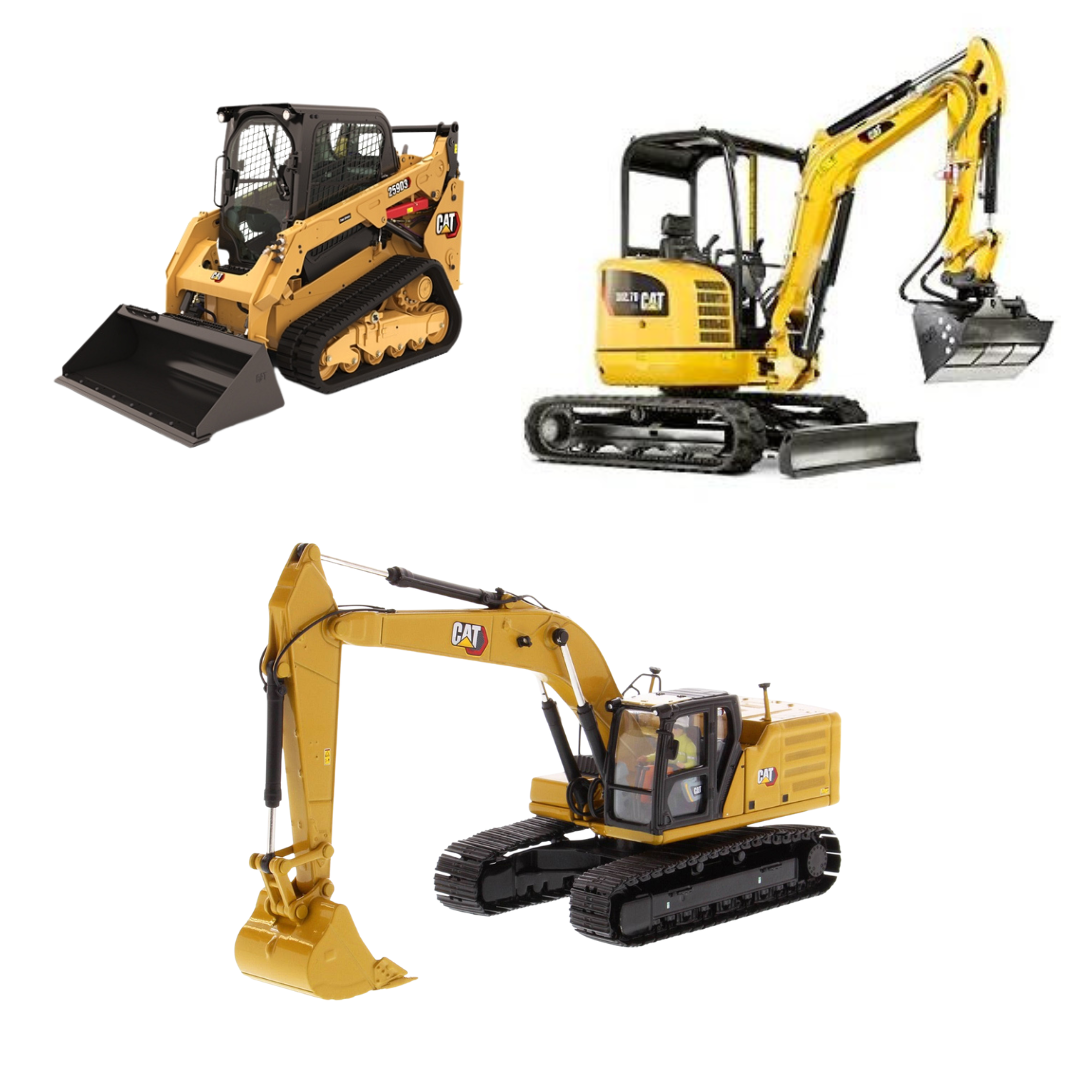Mini Excavator Rental: Compact Machines for Tight Spaces
Mini Excavator Rental: Compact Machines for Tight Spaces
Blog Article
Optimize Your Budget by Understanding the Costs Related To Building And Construction Devices Rentals
Recognizing the complete range of costs linked with building equipment services is important for optimizing your budget. While the initial rental cost may appear simple, countless added costs-- such as transport, fuel surcharges, and maintenance-- can promptly gather, influencing your financial planning. Additionally, recognizing various charges and the intricacies of rental contracts can help stay clear of unexpected financial concerns. What methods can be used to efficiently take care of these expenses and make certain a much more reliable rental experience?
Review of Rental Expenses
When thinking about construction devices services, understanding the associated prices is paramount for efficient budgeting and job preparation. Rental costs can vary considerably based on a number of aspects, including equipment kind, duration of leasing, and location. The first rental cost typically shows the devices's market need and its connected functional abilities, affecting the overall cost.
Along with the base rental rate, supplementary expenses might develop, such as transportation fees, fuel additional charges, and maintenance charges. It is necessary to represent these added expenses to precisely analyze the overall expense of renting equipment. In addition, the rental period can impact prices; longer services might receive affordable rates, while temporary rentals could incur higher everyday fees.

Break Down of Rental Rates
A comprehensive understanding of rental rates is essential for contractors and project managers intending to maximize their spending plans. Rental prices for building equipment usually include several components, consisting of base prices, time-based charges, and usage fees.
Base prices are the core fees connected with the rental of the tools, usually established by the kind and dimension of the machinery. These prices can differ considerably, influenced by elements such as tools need, availability, and local market patterns. Time-based charges, which might be daily, weekly, or monthly, offer to accommodate various job timelines and rental durations.
In addition, rental rates may consist of usage costs, which are suitable when equipment is made use of past a specified limit, guaranteeing that the rental firm can represent wear and tear. Seasonal need changes can additionally impact rental prices, with peak building periods usually regulating higher costs.
Furthermore, recognizing the rental firm's policies concerning maintenance and insurance coverage can offer additional understanding into the total expense framework. By evaluating these elements, professionals can make enlightened decisions, making sure the option of rental devices lines up with both job demands and budget constraints.
Additional Costs to Take Into Consideration
Understanding the complexities of extra charges is critical for contractors to manage their general leasing costs successfully. Past the typical rental prices, numerous supplemental fees can substantially affect the overall expense of devices service. These costs usually consist of distribution and pick-up fees, which can vary based on distance and logistics included in moving the devices to and from the task site.
Additionally, some rental business may impose gas additional charges if the tools is returned with much less gas than when leased. It is also vital to be aware of potential cleaning fees, specifically for customized devices that requires extensive maintenance after use.

Completely assessing the rental agreement and making clear these extra fees ahead of time can assist professionals avoid unanticipated costs and ensure that budgets continue to be intact throughout the task lifecycle.
Maintenance and Fixing Costs
Regular repair and maintenance costs are frequently forgotten elements that can significantly influence the total cost of building and construction devices rentals. When leasing equipment, it is vital to consider not only the rental costs but likewise the potential expenses related to maintaining the equipment in optimum operating condition.
Lots of rental companies include fundamental upkeep as component of the rental arrangement; however, a lot more unexpected malfunctions or considerable repairs can result in extra expenditures. It's important to examine the rental agreement very carefully to recognize what maintenance solutions are covered and what duties fall on the renter.
Moreover, devices that is not well-kept can cause ineffectiveness at work website, possibly boosting and causing delays task prices. To reduce these risks, it is suggested to carry out regular assessments and maintain open interaction with the rental provider concerning any issues that develop during use.
Insurance Coverage and Liability Prices
Insurance policy and responsibility expenses are vital elements that can considerably impact the overall expenditure of building and construction tools leasings (aerial lift rental). These costs ensure that both the rental company and the customer are secured from potential economic losses developing from mishaps, damage, or burglary throughout the rental period

Furthermore, customers ought to recognize any kind of deductibles or exclusions in the insurance coverage policy, as these can impact potential out-of-pocket costs. Recognizing the conditions of any type of insurance coverage is essential to avoid unforeseen costs. Ultimately, budgeting for insurance and responsibility costs can help make certain a smoother rental experience and shield against financial risks related to building and construction projects.
Final Thought
In final thought, an extensive understanding of the costs associated with construction equipment services is necessary for reliable spending plan administration. Eventually, informed decision-making regarding tools services adds to the total success of page building and construction undertakings.
Rental expenses can vary dramatically based on several variables, including equipment kind, duration of rental, and area (boom lift rental). The rental duration can affect pricing; longer services may certify for reduced rates, while short-term services might sustain higher day-to-day fees
By performing thorough study and involving with respectable rental companies, professionals can successfully navigate the complexities of rental rates, inevitably optimizing their economic sources.
Beyond the typical rental rates, numerous extra charges can substantially influence the overall price of equipment service. Rental companies usually offer responsibility insurance coverage that covers injuries to 3rd parties or damage to residential property, while equipment damage insurance policy can cover the cost of repair work or substitute if the rented out devices is harmed.
Report this page